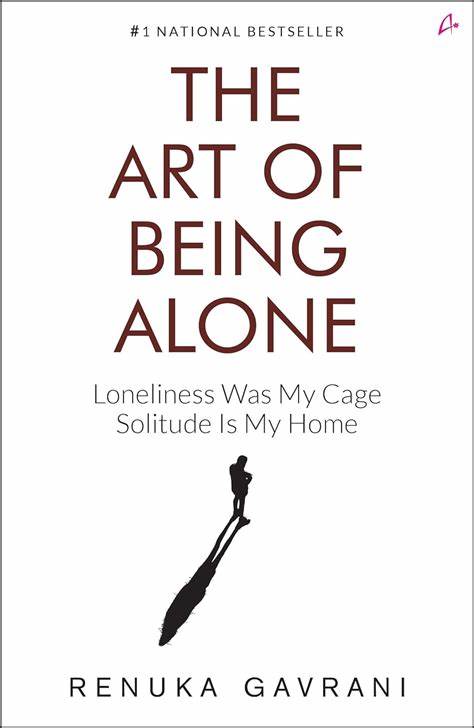
The art of being Alone
The Art of Being Alone by Renuka Gavrani is a profound exploration of solitude, self-discovery, and the transformation of loneliness into personal empowerment. The book challenges the societal stigma surrounding being alone, arguing that solitude is not a weakness but rather an opportunity for growth, reflection, and self-love. Gavrani emphasizes that loneliness and solitude are not the same—while loneliness stems from a lack of connection, solitude is a conscious choice to embrace one's own company. The book is divided into two parts: the first focuses on understanding loneliness and the emotional struggles that come with it, while the second provides practical strategies for cultivating a fulfilling solitary life. Gavrani encourages readers to stop romanticizing loneliness and instead view it as a stepping stone toward self-awareness. She discusses the pain of hiding one's true self, the importance of authenticity, and the necessity of embracing solitude as a means of personal development. The book highlights how societal expectations often push individuals to seek external validation, leading to feelings of inadequacy when alone. However, Gavrani argues that true happiness comes from within and that learning to enjoy one's own company is a powerful skill. She provides actionable steps to turn loneliness into a period of growth, including practicing mindfulness, engaging in creative pursuits, and building emotional resilience. The book also explores the psychological benefits of solitude, such as increased self-reflection, enhanced creativity, and improved emotional intelligence. Gavrani presents solitude as a tool for self-improvement, urging readers to use their alone time to set goals, develop new skills, and cultivate a deeper understanding of themselves. She introduces the concept of making alone time "addictive" by associating it with positive experiences, such as reading, journaling, or engaging in hobbies. Additionally, she discusses the importance of becoming independent, both emotionally and practically, and how solitude can foster self-sufficiency. The book provides insights into overcoming the fear of being alone, addressing common concerns such as social pressure, self-doubt, and the discomfort of silence. Gavrani reassures readers that solitude is not about isolation but rather about creating a meaningful relationship with oneself.
Posted At: April 25th 2025, 7:18:02 am